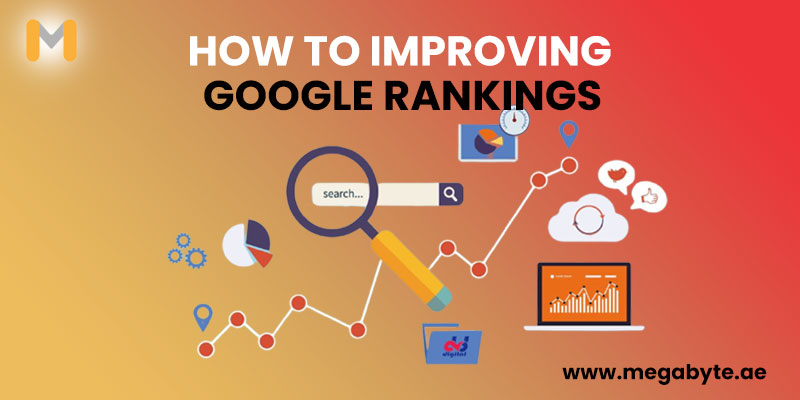Guide to Improving Google Rankings, Not Websites

With the amount of data available online, finding what you would like would be nearly impossible without some help sorting through it. Google rank webpages systems are designed to try to do just that: type through billions of webpages in our Search index to seek out the most relevant, useful leads to a fraction of a second, and present them in a way that helps you discover what you’re trying to find.
These ranking systems are made from not an individual but an entire series of algorithms. To offer you the most useful information, Google algorithms check out many factors, including the words of your query, relevance and usefulness of pages, the expertise of sources, and your location and settings. The load applied to every factor varies, counting on your query’s character—for example, the freshness of the content plays a much more significant role in answering queries about current news topics than it does about dictionary definitions.
Check Your Site’s Health
After watching keyword program rank and site speed, assess your site’s general health before you begin to optimize.
Have you experienced a sudden drop in organic traffic after months or years of consistency?
Are you wondering whether Google has de-indexed (or banned) your site?
There are tons of great tools to help this puzzle. Try the MxToolBox Domain Health Report tool to see significant issues in five different categories: general site problems, blacklist, mail server, web server, and DNS.
Track and Measure the proper SEO Metrics
Next, it’s time to trace your site’s vital metrics to seek out what other factors you would like to enhance. Here are the foremost important metrics to assess.
Organic Traffic
It’s important to understand how visitors find your site via Google. Within the past, organic search drove most website visitors, crushing non-organic channels like paid search and social media.
Today, social media, email, and paid ads often lead the pack in driving organic traffic — but which will vary drastically by industry.
To find out what percentage of visitors reach your site, log in to your Google Analytics account and inspect the acquisition channels report. This useful Google Analytics guide will guide you.
Organic Traffic Conversions
In addition to analyzing search traffic, it’s worth listening to the keywords that generate traffic for your site. This is often harder to ascertain than it used to be but remains possible.
One way to seek out these may be a simple tool called SERP Scan. I’ve been using it to spot the keywords that convert organically for my site.
SERP Scan will show you the keywords that have sent organic traffic to your site within the last 12 months. It includes an on-page SEO keyword performance chart.
This tool makes it easy to urge the info you simply need from Google Analytics and know the broad picture concerning your site’s keywords. But, you continue to need more.
Keyword Ranking for Transactional Keywords
The number one keyword research mistake isn’t spending enough time that specializes in transactional keywords.
That’s because commercial keywords are those that drive revenue. To enhance your program rankings and make money, you would like to know the difference between commercial and informational keywords to enhance Google rankings.
If all of your keywords are informational, you can still generate organic traffic. Still, it’s going to be difficult to convert those visitors to buyers or people that share on social media.
The reason is that visitors who look for informational keywords like:
- How to clear acne with home products
- How to install WordPress
- Make money online for free of cost.
- Free ebook download
- Top 10 free article spinners
If they’re not within the buying mood, they need you to talk their language – the programming language of free. Now, these terms can drive traffic, and a solid sales funnel will convert a number of those people — but not many.
In contrast, some people use transactional keywords that show user intent, like:
- Best acne products
- Top 10 web hosting providers
- Web designers in NY
- These folks are probably checking out an answer that they will buy.
If you’re within the e-commerce industry, you’ll hopefully already know that transactional keywords tend to convert well.
Set Up An SEO Dashboard to trace These Metrics
I recommend that you found out SEO strategies so that you’ll track all of the important metrics at any time.
Here’s the way to set one up in Google Analytics. Tools like SEMRush also make it easy to trace SEO discussion efforts with an integrated dashboard — but you’ll need to buy the tool to use it.
If you’ve got the cash to drop on SEO tools, go for it. If you’re on the very minimum budget, however, Google Analytics should serve you only fine.
In addition to fixing dashboards in Google Analytics, you’ll get even richer keyword data by connecting Google Webmaster Tools to Google Analytics.
Conclusion
Unlocking the Google search ranking features a certain level of charisma. The key to unlocking higher Google rankings without getting slapped with a penalty boils right down to being valuable and memorable.
Take the time to understand your audience and their desires indeed.
Once you’ve got this info, you’ll create killer content to satisfy their needs, solve their problems, and keep them returning for more.
Keep churning out great content and promoting it with all you’ve got.
Read Also: Why Digital Marketing is Key for Businesses in 2021




